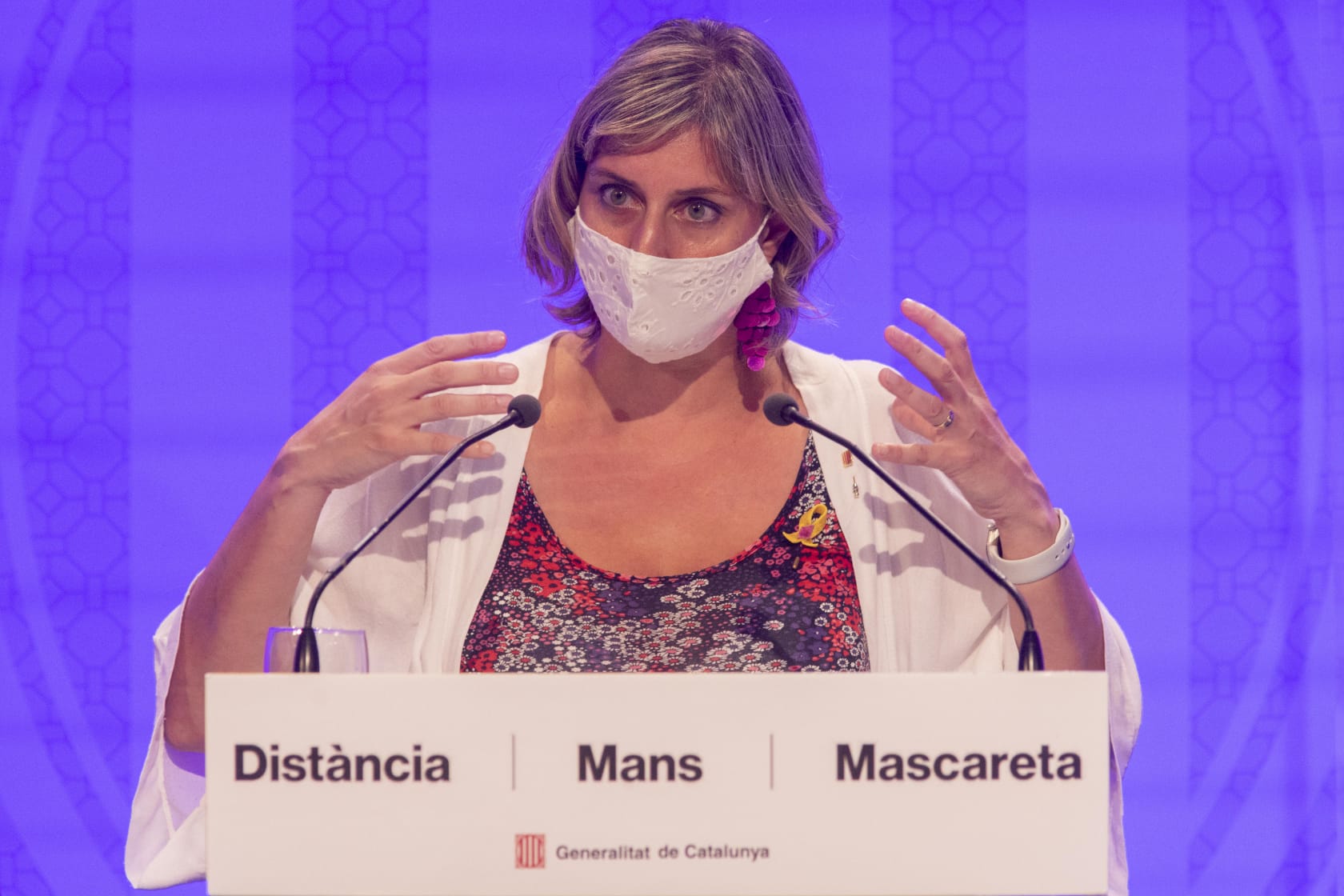The Catalan health ministry has decided to extend the current Covid-19 restrictions applying to most of metropolitan Barcelona for another two weeks. This was announced this Tuesday afternoon by minister Alba Vergés, during a visit with the city's mayor, Ada Colau, to the mass PCR testing tent set up in the Raval district.
The measures, due to end this Tuesday, will now continue in force. They include a ban on gatherings of more than ten people, a limit of 50% capacity for bars and restaurants and restrictions on religious events, among others. "The situation is stable, but at much higher levels than we would like," said the minister. Vergés called for people to "be more cautious and preventive" and to postpone avoidable activities "till later." “We need to avoid generating contact chains as much as possible,” she urged.
Current restrictions have already been extended in some other municipalities such as Reus, and the health minister assured that this on-going review process will continue in the coming months to adapt to the evolving epidemiological situation. "That's why we have also applied new measures in Salt and Girona", Vergés explained.
Restrictions in metropolitan Barcelona
The restrictions, which date from August 29th and in some cases earlier in August, will be extended again this Tuesday, and are as follows:
- Residents are recommended to stay at home and limit journeys outside to essential activities.
- Gatherings of more than ten people are prohibited, both in the private and public spheres (excluding public transport and work).
- In hospitality and catering activities, capacity is limited to 50% of the normal maximum and with distances of 2 metres between tables or groups of tables guaranteed. Latest closing time is 1am and new guests may not be accepted after midnight.
- For cultural facilities, and sports and leisure activities, capacity is limited to 50%.
- Protective measures such as wearing of masks and hand washing must be rigorously maintained
These measures affect the municipalities of Barcelona, Viladecans, El Prat de Llobregat, Sant Boi de Llobregat, Cornellà de Llobregat, Sant Just Desvern, Esplugues de Llobregat, Sant Joan Despí, L'Hospitalet de Llobregat, Montcada i Reixac, Santa Coloma de Gramenet , Sant Adrià de Besòs, Badalona, Sant Feliu de Llobregat, Gavà and Castelldefels.
The situation of the pandemic in Barcelona
According to Catalan public health data from the last two weeks, the average incidence of Covid-19 cases in Barcelona is 168 per 100,000 inhabitants. However, there are neighbourhoods that far exceed this figure, such as the neighborhood of Trinitat Vella (368) or the Raval (317). This Tuesday, a mass PCR testing campaign began in the Raval district to detect asymptomatic cases. "This is the basis for cutting transmission chains in places where there is an index above average," said minister Vergés. On the first day, PCR tests were given to about 400 people in total - a very small proportion of the 20,000 residents of the neighbourhood who are called to take them.

Tent installed this Tuesday to perform PCR tests in the Raval district. / Sergi Alcázar.

